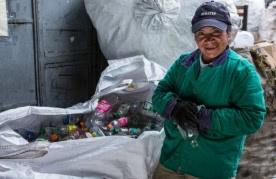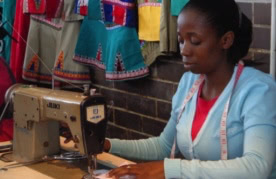Recent Posts
On International Waste Picker Day, WIEGO’s Sonia Dias tells us what works and the challenges ahead
In recent years, waste pickers have made significant progress in gaining greater recognition as key environmental and economic agents. Their work collecting recyclables from city streets and keeping public spaces clean – particularly in developing countries – comes at little cost to municipal budgets, yet accounts for a significant portion of solid waste management, recycling, and disposal.
Findings from South Africa suggest that supporting informal employment could help countries reach development goals
by Mike Rogan & Paul Cichello
Since the tragic collapse of the Rana Plaza buildings in Bangladesh in 2013, the decent work deficits in global supply chains have enjoyed renewed focus. The tragedy has resulted in the Bangladesh Accord on Fire and Building Safety, the Bangladesh Alliance, and, ultimately, in the 2016 International Labour Conference (ILC) on global supply chains. But factory workers like those at Rana Plaza – many of whom were stitching clothing for international brands – are not the only vulnerable workers in global supply chains.
Desde el trágico colapso, en 2013, de los edificios del Rana Plaza en Bangladés, las deficiencias en el respeto de los derechos fundamentales en el trabajo en las cadenas mundiales de suministro han recibido una renovada atención. La tragedia ha impulsado el Acuerdo de Bangladés sobre seguridad en la construcción de edificios y de instalaciones de sistemas contra incendios, la Alianza de Bangladés, así como la Conferencia Internacional del Trabajo (CIT) de 2016 sobre el trabajo decente en las cadenas mundiales de suministro.
Over the last couple of weeks, we’ve been exploring technologies used by informal workers to improve their productivity and some of the challenges they face in upgrading this “technology” – often simple tools, such as knives, ropes and wheelbarrows.






